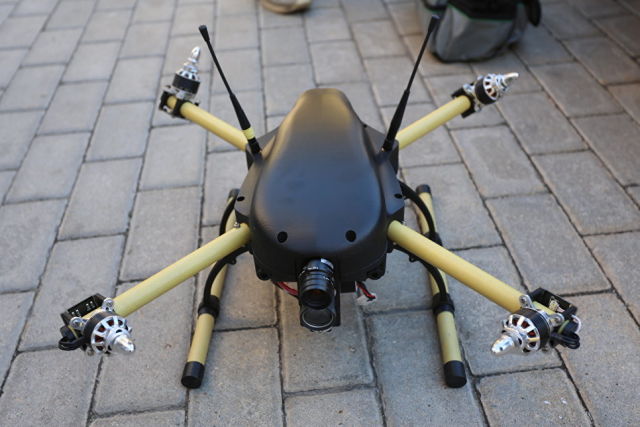Russia does not have the necessary legal framework for the use of unmanned aerial vehicles, said Roman Meshcheryakov, Director of the center for intelligent robotic systems at the Trapeznikov Institute of management problems of the Russian Academy of Sciences
ANAPA (Krasnodar territory), November 6. /TASS/. The lack of a legal framework, domestic components, and testing grounds are holding back the pace of development of unmanned aerial vehicles in Russia, according to experts interviewed by TASS following the results of the "Aerobot-2020" competition, which ended on Friday in the military Technopolis "ERA" in Anapa. Technopolis, in turn, is ready to become the main platform for the development of domestic unmanned aviation.
Did not reveal the winner
On Friday, the competition in the field of development, creation and operation of advanced robotic systems for civil, military, special and dual-use air-based "Aerobot-2020" ended in Technopolis "Era". The competition was held in two stages: first, the teams completed tasks on simulators, at the end of this stage, five finalists were determined, who went to the second stage, where they tested the developed drones in a real polygon.
One of the organizers of the competition, Deputy Director of the research Institute of robotics and management processes of the southern Federal University, Yevgeny Kosenko, told TASS that the competition rules provided for such tasks as searching for an object (in practice, such tasks are set when searching for people in urban areas); searching for a route to exit the premises by tags; high-speed flight through a given territory with obstacles.
"Taking into account the fact that none of the teams completed the tasks in full, the judging panel decided not to identify the winners," chief judge Rinat Galin, who is a researcher At the V. A. Trapeznikov Institute of management problems of the Russian Academy of Sciences, said during the closing ceremony.
Bogdan Leshchenko, an engineer at the third robotics laboratory of Technopolis, who was a judge at the competition, explained to TASS that the teams faced difficulties when performing tasks in a real polygon. "The problem is that the existing simulators do not give the physical phenomena that exist in the real environment. Not all developers can afford to create even primitive polygons, since this requires space, there are few polygons for testing in the country, " the source added.
What is holding back the development of drones
As part of the competition, a round table on the prospects for the development of small-sized unmanned aerial vehicles was held in Technopolis ERA on Friday. Industry experts interviewed by TASS noted that the pace of introduction of unmanned aerial vehicles in Russia is hindered by the lack of analogues of domestic production of components for drones, the regulatory framework for their use.
"In the foreseeable future, unmanned aerial vehicles will become as familiar technologies as a computer or a voice recorder. I would like to see a Russian element base from which they can be assembled, " Roman Meshcheryakov, Director of the center for intelligent robotic systems at the Trapeznikov Institute of management problems of the Russian Academy of Sciences, told TASS.
Evgeny Kosenko, Deputy Director of the research Institute of robotics and control processes of the southern Federal University, who organized the "Aerobot-2020", explained to TASS that most of the components used for drones are now foreign analogues.
"The components available to domestic manufacturers do not have the necessary advanced technical characteristics, which means that the tasks are set either to reduce the amount of computing resources, or to develop in the direction of their own development of components," the Agency's interlocutor noted.
Meshcheryakov added that Russia also does not have the necessary legal framework for the use of unmanned aerial vehicles. "They need to be registered, it is necessary to provide for measures of liability for damage: for example, when a drone collides with a person, car, building - such measures have not yet been worked out. The legal framework is still lagging behind, " he stated.
The press service of Technopolis ERA TASS reported that Technopolis can become one of the main platforms for the development of unmanned aircraft in Russia, noting that the necessary material and technical base is equipped for testing, and there are opportunities to test the component base of drones developed in the country. "In Technopolis in 2021, it is planned to fully launch a plant that will develop components for unmanned aircraft," the press service added.
About Technopolis ERA"
The Era Technopolis has established research laboratories that are equipped with advanced equipment that allows conducting research in 16 scientific areas. These include robotics, information security, biotechnical systems and technologies, small spacecraft, marine, hydrometeorological and geophysical support, weapons based on new physical principles, artificial intelligence technologies, and others.



